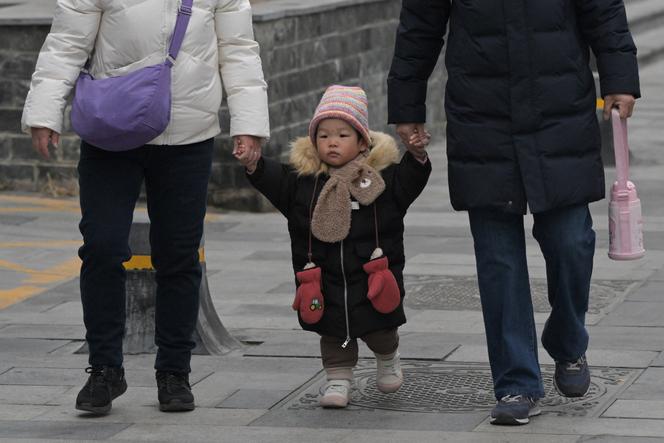


The first call surprised her a little, the second frankly annoyed her. Mrs. Mao, a teacher from Jiangsu province, is nearly 30 and married. The first time, in May, the local committee employee was not very insistent on the phone. She certainly wanted to know if she was planning to have a child, but as this was not the case in the short term, she only reminded her of the importance of taking folic acid during the early stages of pregnancy if she were to have such plans in the future.
The second time she was called, in October, another local official immediately asked her when she'd had her last period. Mao found this downright intrusive, and in any case, she no longer had the precise date in her head, to which the person on the other end of the line replied that she'd get back to her in a few weeks to find out about her cycle. "They think they're the menstrual police? It's completely inappropriate, it's my private life!" she said, outraged.
Despite the teacher's irritated tone, the officer from the neighborhood committee – the level closest to the citizen in the Chinese administration – continued by asking if she had any pets. And she emphasized the risks of toxoplasmosis transmission. "The government would do better to focus more on reducing the cost of raising a child," commented the young woman.
Like her, more and more Chinese women of childbearing age are receiving such calls from local authorities, as the government is deeply concerned about the country's demographic situation. The fertility rate, the number of children per woman, fell to 1.09 in 2022, synonymous with rapid demographic decline, whereas the level required to maintain a stable population is 2.1 children. In 2023, China's population decreased by two million, falling below India's. A United Nations "World Population Prospects" study concluded in July 2024 that China's population would fall by more than 200 million between 2024 and 2054, and that by 2100, it could have more than halved from its current level of 1.4 billion.
In fact, it's rare to come across Chinese people wanting more than one child. Between 1980 and 2016, the one-child policy prohibited having more than one child. Omnipresent in propaganda for more than three decades, it has left a lasting mark on people's minds, even though the Chinese recognize its success in accelerating the demographic transition. Economic development in the meantime has sharply increased the cost of raising a child, while with rising education levels and the necessary focus on careers, the Chinese are beginning to consider becoming parents much later in life. Without a sufficient social safety net on which to base a family, and with women also fearing discrimination in their employment, few people feel they can afford the luxury of having more than one child, not least because of the cost of city housing and early childhood care.
You have 58.43% of this article left to read. The rest is for subscribers only.
